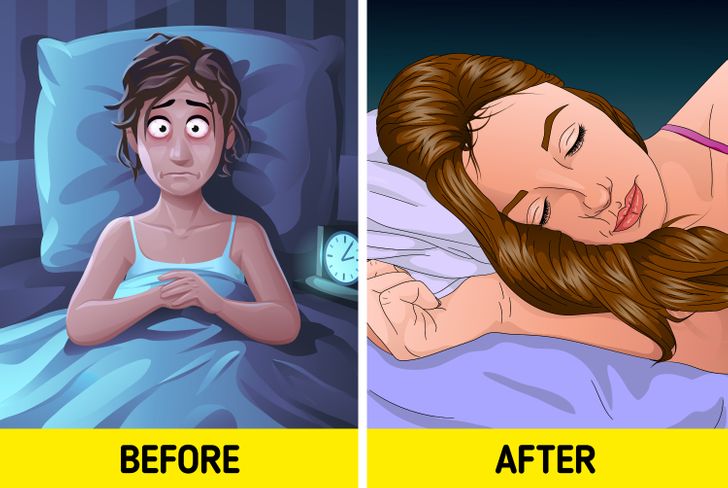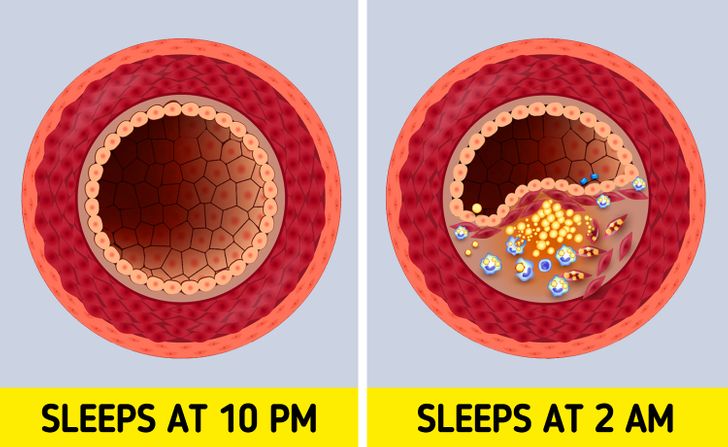In today’s fast-paced world, many struggle to maintain a consistent sleep schedule. However, aligning your bedtime with your body’s natural circadian rhythm can lead to incredible health benefits. Going to sleep at 10 PM not only maximizes sleep quality but also supports overall physical and mental well-being. In this article, we explore the transformative effects of an early bedtime, examining how it optimizes sleep, accelerates physical recovery, reduces stress, strengthens the immune system, and enhances emotional regulation and empathy.
Modern research consistently shows that sleep is one of the most crucial factors in maintaining optimal health.
Maximizing Sleep Benefits: Unlocking the Power of a 10 PM Bedtime

Adopting a consistent bedtime, especially around 10 PM, helps synchronize your body’s internal clock with natural light and dark cycles. This alignment can lead to enhanced sleep quality, improved energy levels, and better mental clarity. The circadian rhythm, which regulates sleep and wake cycles, thrives when you maintain a regular schedule.
By going to sleep at 10 PM, you allow your body to complete essential sleep cycles, including deep sleep and REM sleep. Deep sleep is critical for physical restoration, while REM sleep is linked to cognitive functions and emotional processing. As a result, waking up after a full night’s sleep can boost memory, creativity, and concentration throughout the day.
For more information on the science behind circadian rhythms, check out the research available at Harvard Health Publishing.
Physical Rejuvenation: How Early Sleep Restores Your Body

A 10 PM bedtime is more than just an early night—it’s an investment in your body’s physical health. As you drift off to sleep, your body enters a state of repair and recovery. Cells regenerate, muscles rebuild, and tissues repair themselves during the night.
Enhanced Muscle Recovery and Growth:
During deep sleep, the body secretes growth hormone, which is essential for tissue repair and muscle growth. This hormone not only supports physical recovery after exercise but also plays a crucial role in overall health. For athletes and fitness enthusiasts, a consistent early bedtime can lead to improved performance and reduced recovery time.
Improved Metabolic Health:
Sleep also regulates metabolism. Poor or insufficient sleep can lead to imbalances in appetite-regulating hormones such as leptin and ghrelin, which may contribute to weight gain. By ensuring you get enough rest at 10 PM, you support hormonal balance and metabolic function, reducing the likelihood of obesity and type 2 diabetes.
External Resource:
For more insights into how sleep affects metabolism and muscle recovery, visit WebMD.
Stress Relief and Mental Clarity: How Early Sleep Lowers Cortisol Levels

One of the most immediate benefits of going to sleep at 10 PM is the reduction of stress levels. Stress is an inevitable part of life, but chronic stress can lead to a host of physical and mental health issues. Sleep is a natural stress reliever that lowers the production of cortisol, the body’s primary stress hormone.
The Role of Cortisol:
High cortisol levels are linked to anxiety, depression, and a weakened immune system. When you sleep early, your cortisol levels begin to drop, allowing your body to relax and recover from daily stressors. Lower cortisol levels can lead to improved mood, better concentration, and enhanced overall mental health.
Benefits for Mental Health:
Consistent, quality sleep is associated with a lower risk of developing mental health disorders. By committing to a 10 PM bedtime, you promote not only physical rest but also mental rejuvenation. This can lead to increased productivity and a more positive outlook on life.
External Resource:
For additional information on stress reduction and sleep, consider reading the articles available at Mayo Clinic.
Enhanced Immune Function: Reducing Disease Risk with Early Sleep

A healthy sleep schedule is a powerful tool in bolstering your immune system. Research has demonstrated that a consistent sleep pattern is closely linked to improved immune function and a reduced risk of disease.
Sleep and the Immune System:
During sleep, your body produces cytokines, proteins that help combat infections and inflammation. An early bedtime ensures that your body has sufficient time to produce these essential immune boosters. Conversely, chronic sleep deprivation can compromise immune function, making you more susceptible to illnesses such as the common cold, flu, and even more severe conditions.
Long-Term Health Benefits:
By adopting a 10 PM sleep schedule, you are actively working to reduce the risk of chronic illnesses. A robust immune system not only protects you against infections but also plays a critical role in preventing long-term conditions like heart disease and diabetes.
External Resource:
For further reading on sleep and immune health, explore studies published by the National Institutes of Health (NIH).
Emotional Regulation: How a Consistent 10 PM Sleep Boosts Mood Stability

Sleep has a profound impact on emotional health. A regular sleep schedule, particularly one that starts at 10 PM, is linked to improved emotional regulation and a more balanced mood.
Managing Emotions Through Sleep:
When you sleep, your brain processes and consolidates emotional experiences. This process helps you manage your emotions more effectively, leading to better mood regulation and reduced emotional reactivity. Studies have shown that individuals who maintain a consistent sleep schedule report higher levels of emotional stability and lower rates of mood disorders.
Impact on Daily Life:
Good sleep enhances your ability to cope with stress, handle daily challenges, and make rational decisions. With improved emotional regulation, you’re more likely to have better relationships and a more positive social life. Additionally, stable moods contribute to overall mental well-being and increased resilience in the face of stress.
External Resource:
For more on the connection between sleep and emotional health, check out insights from Psychology Today.
Enhanced Empathy and Social Cognition: The Emotional Benefits of Early Sleep

Beyond personal emotional regulation, a consistent 10 PM bedtime can enhance your social interactions by improving your ability to understand and empathize with others. Quality sleep enhances brain functions associated with empathy and social cognition, allowing you to better interpret and respond to the emotions of those around you.
Improved Social Interactions:
A well-rested brain is more capable of processing social cues and understanding the emotional states of others. This heightened emotional intelligence not only improves personal relationships but also contributes to professional success. People who sleep well are often more patient, compassionate, and effective communicators.
Neuroscientific Perspective:
Research in neuroscience suggests that sleep plays a critical role in strengthening neural networks involved in social cognition. Adequate sleep fosters better connectivity in brain regions responsible for empathy, making it easier to read facial expressions, tone of voice, and body language.
External Resource:
For additional details on how sleep impacts empathy and social behavior, visit ScienceDirect.
The Science Behind Sleep: How a 10 PM Bedtime Optimizes Health
Understanding the science behind why a 10 PM bedtime is beneficial can help you appreciate the comprehensive health benefits associated with early sleep. The human body is designed to function optimally with a regular sleep schedule that aligns with natural circadian rhythms.
Sleep Stages and Their Importance:
- Stage 1: The transition from wakefulness to sleep, where the body begins to relax.
- Stage 2: A period of light sleep, where the heart rate slows, and the body temperature drops.
- Stage 3: Deep sleep, essential for physical restoration, tissue repair, and the secretion of growth hormones.
- REM Sleep: A critical stage for cognitive functions such as memory consolidation, learning, and emotional processing.
When you go to sleep at 10 PM, you allow your body to progress through these stages naturally, leading to optimal recovery and health benefits. The synchronization of sleep stages with the body’s internal clock supports better hormone regulation, energy levels, and overall wellness.
External Resource:
For a detailed overview of sleep stages and their functions, refer to the educational content available at Sleep Foundation.
Practical Tips for Establishing a 10 PM Bedtime
Implementing an early bedtime can seem challenging at first, especially if you’re used to staying up late. However, a few practical strategies can make the transition smoother and more effective.
Establish a Consistent Routine:
Create a bedtime routine that signals to your body it’s time to wind down. This could include activities like reading, meditating, or taking a warm bath. Consistency is key—try to go to bed at the same time every night, even on weekends.
Optimize Your Sleep Environment:
A comfortable and quiet sleep environment can significantly enhance sleep quality. Ensure your bedroom is dark, cool, and free of electronic distractions. Consider using blackout curtains, a white noise machine, or calming scents like lavender to create a relaxing atmosphere.
Limit Screen Time Before Bed:
Exposure to blue light emitted by phones, tablets, and computers can disrupt your body’s natural sleep signals. Try to limit screen time at least an hour before your planned bedtime, and consider using blue light filters in the evening.
Mind Your Diet and Exercise:
Avoid consuming heavy meals, caffeine, or alcohol close to bedtime. Instead, opt for light, nutritious snacks if you’re hungry. Regular exercise can also promote better sleep quality, but be mindful of intense workouts right before bed.
External Resource:
For more practical sleep tips, check out the advice provided by Harvard T.H. Chan School of Public Health.
Conclusion: Embrace the Benefits of a 10 PM Bedtime for a Healthier Life
Committing to a 10 PM bedtime offers a multitude of health benefits that extend far beyond simply getting enough sleep. From physical rejuvenation and enhanced metabolic function to reduced stress levels and improved emotional regulation, early sleep is a cornerstone of a healthy lifestyle.
By aligning your sleep schedule with your body’s natural rhythms, you maximize the quality of your sleep and unlock the potential for optimal health. The benefits are clear: a consistent 10 PM bedtime promotes muscle recovery, hormonal balance, stress relief, immune support, and improved cognitive and emotional functioning.
Incorporating these practices into your daily routine can help you harness the full power of sleep. Remember, quality sleep is an investment in your long-term health and well-being. As you implement these strategies and observe the positive changes in your life, you’ll realize that the simple act of going to bed early is a powerful tool for achieving a healthier, happier, and more productive lifestyle.
For further insights and ongoing research on sleep health, explore reputable resources like WebMD, Mayo Clinic, and Sleep Foundation. These authoritative sources provide a wealth of information on the science of sleep and practical advice for optimizing your sleep habits.
Embrace the benefits of an early bedtime and discover how simply going to sleep at 10 PM can transform your health—both physically and mentally. Start tonight and pave the way for a more energized, balanced, and fulfilling life.
Preview photo credit kbeis / DigitalVision Vectors / Getty Images, Shutterstock.com









